

Delivering integrated services
Overview
Key documents
Planning for Wellbeing - Year one implementation report
Queensland framework for the development of the mental health lived experience workforce
Queensland Health Mental Health Framework Peer Workforce Support & Development
The Fifth National Mental Health and Suicide Prevention Plan
National Drug Strategy
Shifting Minds - Queensland Mental Health, Alcohol and Other Drugs Strategic Plan
Objectives and actions
Action
Planned completion
Status
5.1.1
Explore and leverage opportunities for expanding provision of community-managed mental health and alcohol and other drug treatment services
Planned completion
Ongoing
Status
On track
5.1.2
Focus funding investment and service delivery on those groups in most need, including specific population groups, geographic communities and diagnosis groups
Planned completion
Ongoing
Status
On track
Action
Planned completion
Status
5.2.1
Identify options to expand virtual and/or physical ‘hubs’ for people seeking mental health support and referral, including options incorporating peer service navigators
Planned completion
Ongoing
Status
On track
5.2.2
Expand implementation of the electronic triage and referral tool for mental health (‘rediCASE’), to support GPs and service providers to connect people to the services that are right for them
Planned completion
Ongoing
Status
On track
5.2.3
Trial the Initial Assessment and Referral protocols for PHNs, to support GPs and service providers to connect people to the services that are right for them
Planned completion
Status
Completed
5.2.4
Using our stepped care framework, ensure regular review of needs of consumers accessing mental health services and connect consumers to services that best meet their changing needs and circumstances
Planned completion
Ongoing
Status
On track
5.2.5
Strengthen our approaches to service delivery in the areas of recovery, harm minimisation and trauma-informed practice
Planned completion
Ongoing
Status
On track
5.2.6
Explore and develop shared approaches to clinical governance mechanisms to allow for agreed care pathways, referral mechanisms, quality processes and review of adverse events
Planned completion
Ongoing
Status
On track
Action
Planned completion
Status
5.3.1
Review and align My Mental Health, and HealthPathways, in the context of Head to Health, to ensure services are well promoted and readily accessible
Planned completion
Ongoing
Status
On track
5.3.2
Explore the development of an electronic shared record that can be accessed by service Consumers, Metro North Health, primary healthcare practitioners and NGOs
Planned completion
Ongoing
Status
On track
Updated
5.3.3
Review and further develop a clinical care pathway for people experiencing both mental illness and substance use issues.
Planned completion
2020/2021
Status
On hold
Updated
5.3.4
Explore the need for establishing a care pathway for people experiencing mental illness and intellectual disability or autism
Planned completion
2021/2022
Status
On track
Updated
5.3.5
Develop and implement a mechanism for the mental health, suicide prevention and alcohol and other drug treatment sectors to effectively and efficiently engage with broader health and human service sectors
Planned completion
No date set
Status
On hold
5.3.6
Advocate for an integrated, streamlined national approach to reporting regimes both across mental health, suicide prevention and alcohol and other drug treatment services and between regions
Planned completion
Status
On track
Updated
5.3.7
Explore options for working with organisations delivering responses to eating disorders to inform and further develop regional service delivery models
Planned completion
2021/2022
Status
On track
Action
Planned completion
Status
5.4.1
Conduct a Brisbane North workforce needs assessment for the mental health, suicide prevention and alcohol and other drug treatment services sectors, including for the peer workforce
Planned completion
No date set
Status
notstarted
5.4.2
Develop and implement a strategy addressing the above workforce’s identified needs
Planned completion
No date set
Status
notstarted
5.4.3
Facilitate access by the above workforce to discipline-specific, evidence-informed training, including on trauma-informed care, recovery-oriented practice, harm minimisation and family-inclusive practice
Planned completion
No date set
Status
notstarted
5.4.4
Create opportunities for the above workforce to network, build relationships, improve referral approaches and work in partnership
Planned completion
Ongoing
Status
On track
5.4.5
Expand and develop the Indigenous workforce and peer workforce in mental health, suicide prevention and alcohol and other drug treatment services
Planned completion
Ongoing
Status
On track
5.4.6
Facilitate access to training for generalist health, social services, justice and education workers in specific skills relating to mental health and alcohol and other drug use (e.g. Certificate IV in Mental Health, Certificate IV in Mental Health Peer Work or Mental Health First Aid)
Planned completion
Ongoing
Status
notstarted
Governance
The Strategic Coordination Group (SCG) is the overarching governance mechanism for the Regional Plan, providing oversight and guidance across the whole Plan – including implementation, monitoring, review and evaluation. The SCG has direct oversight over implementation of Chapter Four – Commissioning Services and Chapter Five – Delivering Integrated Services within Planning for Wellbeing.
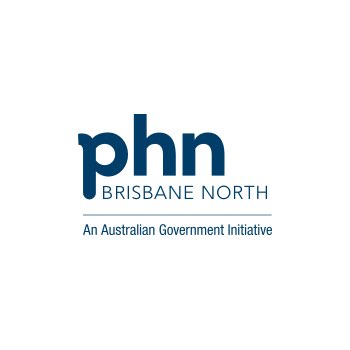
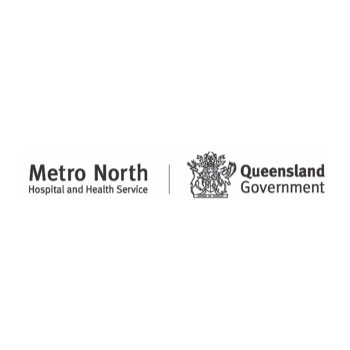
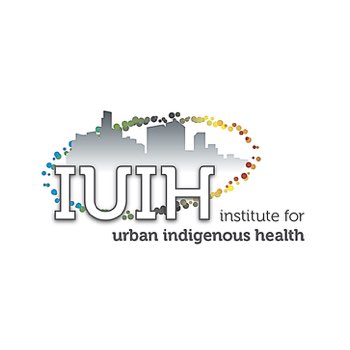
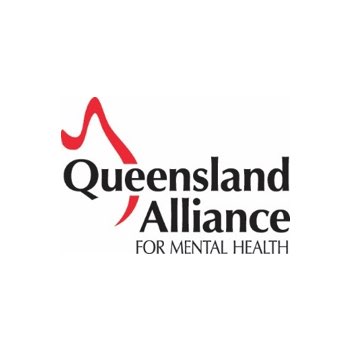
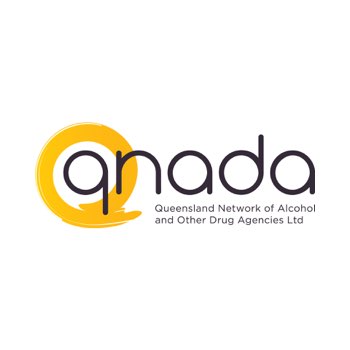
Membership
Adrian Carson
Chief Executive Officer
Institute for Urban Indigenous Health
Amanda Queen
Manager | Mental Health Reform
Brisbane North PHN
Beth Wilson
Director, Health Service Strategy and Planning
Metro North Health
Carmel Nelson
Clinical Director
Institute for Urban Indigenous Health
Chelsea Muscat
Development Coordinator | Mental Health
Brisbane North PHN and Metro North Health
Helen Taylor
Director
Queensland Health, Mental Health Alcohol and Other Drugs Branch
Jennifer Black
Chief Executive Officer
Queensland Alliance for Mental Health
Kathryn Turner
Executive Director
Metro North Mental Health Service
Kathy Faulkner
Manager | Priority Communities
Brisbane North PHN
Kristen Breed
Acting Director
Queensland Health, Mental Health Alcohol and Other Drugs Branch
Leshay Chong
Regional Social Health Manager
Institute for Urban Indigenous Health
Mahalia King
Lived Experience Representative (Consumer)
Mark Fairbairn
Operations Director
Metro North Mental Health Service
Natasha Malmstrom
Lived Experience Representative
Paul Justice
Lived Experience Representative
Paul Martin
Executive Manager | Mental Health Alcohol and Other Drugs
Brisbane North PHN
Rebecca Lang
Chief Executive Officer
Queensland Network of Alcohol and Other Drug Agencies
Sandra Eyre
Senior Director
Queensland Health, Mental Health Alcohol and Other Drugs Branch
Shirley Anastasi
Director of Governance and Quality Management
Metro North Mental Health Service
Tina Pentland
Lived Experience Representative (Carer)
Achievements
Planning for Wellbeing highlights the imperative to shift towards a more coherent service system with integrated services – to facilitate effective responses to the diverse range of healthcare needs that people experience. This shift towards integration is a key driver in both the Fifth National Mental Health and Suicide Prevention Plan [1] and National Drug Strategy [2] as well in Queensland Mental Health Commission’s Strategic Plan – Shifting Minds [3]
Chapter five of Planning for Wellbeing is focused on objectives that will lead to greater integration of services. A summary of the key achievements against the four shared objectives is included below.
[1] Council of Australian Governments – Fifth National Mental Health and Suicide Prevention Plan
[2] Australian Government Department of Health – National Drug Strategy
[3] Queensland Mental Health Commission – Shifting Minds Strategic Plan
Summary of Achievements
The actions to achieve this objective are focused on activity to better target services to vulnerable populations. The last 12 months has seen the establishment of a number of new services in the region, including:
- Specialised Brisbane MIND services targeting hard-to-reach populations
- Integrated mental health service hubs providing clinical and psychosocial support to people with severe mental illness
- Hospital to Home services providing community-based psychosocial support services to people who have accessed HHS services.
Each of these new services represents a shift to services that are better targeted, and embedded within community organisations that can support integration by facilitating connections to complementary services as needed.
The actions to achieve this objective are focused on improvements in service delivery that result from more collaborative and integrated working. Key achievements include the establishment of integrated mental health hubs in the region and the development and implementation of an electronic triage and referral tool to facilitate both initial and ongoing connection to appropriate services that exist in the region.
The actions to better align and integrate services are a mix of strategic activities – such as advocating for national alignment of all reporting regimes across mental health, suicide prevention and alcohol and other drug treatment services; and more localised activities – such as review and alignment of the content on various platforms, such as the My Mental Health [1] website, HealthPathways [2] and the national Head to Health [3] website.
Some localised work is already underway, including reviewing and redesigning the My Mental Health website to ensure alignment of content across various platforms and the consistent promotion of available services; as well as creating opportunities for the range of agencies who are funded to deliver services to people to come together – to get to know each other, share information about what they deliver, strengthen referral pathways, and collaboratively address issues as they arise. This includes agencies who deliver mental health, suicide prevention and alcohol and other drug treatment services – irrespective of funder.
[1] https://www.mymentalhealth.org.au/
[2] https://brisbanenorthphn.org.au/practice-support/the-healthpathways-program
[3] https://headtohealth.gov.au/
The actions to achieve this objective are focused on growing and strengthening the workforce in the region. Of notable achievement has been the development of the Queensland Framework for the Development of the Mental Health Lived Experience Workforce [1], as well as the Queensland Health Mental Health Framework Peer Workforce Support and Development 2019 [2]. These Frameworks provide guidance to support the development and expansion of the lived experience workforce across the State.
Table 5 presents an overview of the 20 actions that were considered necessary to achieve the four shared objectives in this chapter, noting their expected year of completion, and progress to date.
[1] Queensland Mental Health Commission – Lived Experience Workforce Framework
[2] Queensland Health Mental Health Framework Peer Workforce Support and Development (2019)
Success stories
Establishment of integrated mental health service hubs
Objective 5.2: Improve our service delivery Action 5.2.1: Identify options for establishing virtual and/or…
Growing and strengthening the mental health peer workforce
Objective 5.4: Skill up and diversify our workforce Action 5.4.5: Expand and develop the Indigenous workforce…
Support to navigate the mental health service system
Objective 5.2: Improve our service delivery Action 5.2.1 & 5.2.2 Identify options for establishing virtual…

